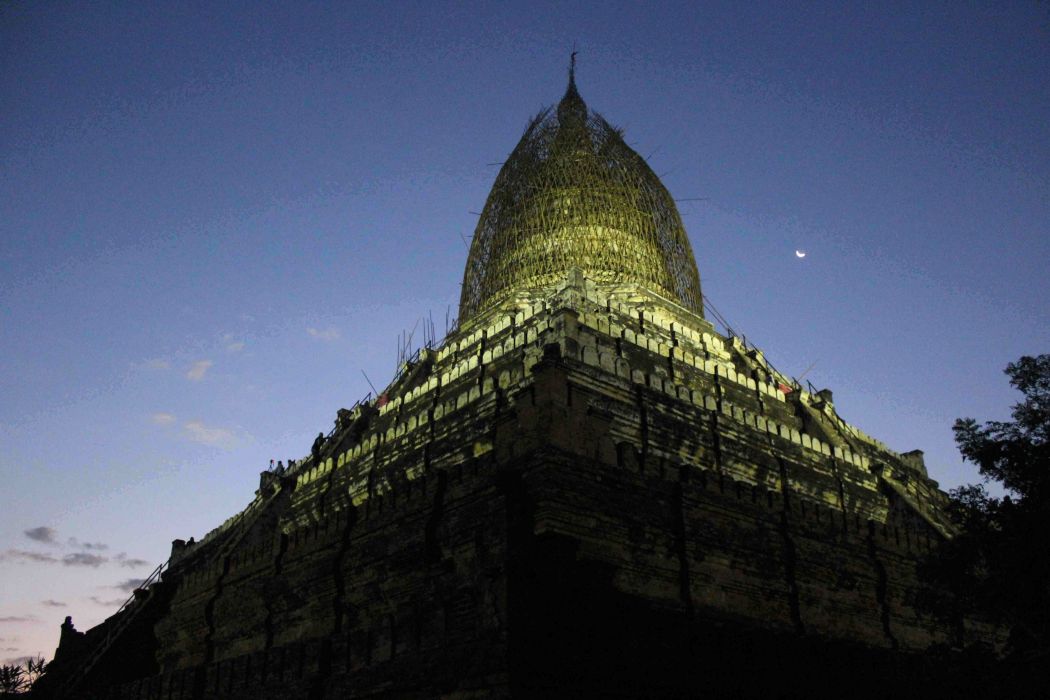Local and foreign visitors will be prohibited from climbing onto pagodas in the Bagan Archaeological Zone in the near future, announced State Counsellor Aung San Suu Kyi on Tuesday.
She was visiting Bagan that day along with the Royal Queen Mother of Bhutan, Ashi Dorji Wangmo Wangchuck.
Her announcement came 11 months after the Ministry of Culture first tried to ban climbing on the pagodas in Bagan on February 22, 2016, and then reversed its decision a day later.
Climbing the pagodas in Bagan to view the sunrise or sunset is widely considered a must-do for tourists.
However, last year, the ministry proclaimed that “[visitors] often behave badly, in a way that is culturally disgraceful, such as wearing inappropriate clothing, dancing and sleeping [on the pagodas]”.
The first ban attempt was meant to have come into effect on March 1, 2016, but the proposal was dropped after tourism business operators spoke out against it. On February 23, the ministry announced that climbing would be allowed at five prominent pagodas: Pyathatgyi, Shwesandaw, South Guni, North Guni and Thitsar Wadi.
“Many travelers are interested in visiting Bagan, which brings business to the area’s residents. Bagan sunrises and sunsets are not like those in other places – they are amazingly beautiful. [Climbing] gradually spoils the pagodas. It will have to be prohibited in the long run,” the state counsellor said during her recent visit.
“Alternative locations must be created to view the sunrise and sunset in Bagan,” she said. “Cultural heritage must be preserved.”
Aung Aung Kyaw, the director of Bagan’s Archaeology Department, told The Irrawaddy that alternative viewing platforms would be built for sunrise and sunset viewing before the ban comes into full effect sometimes between October 2017 and June 2018.
The viewing deck proposal has attracted controversy because the decks are slated to be built on an ancient water reservoir. Archaeology experts and UNESCO officials have raised doubts about the plan, reported The Irrawaddy.
UNESCO national project officer Ma Ohnmar Myo implied to the same publication that the organization may object to the construction of viewing decks if they fail to decrease the impact on the heritage value of the temples or if they cause damage to the original landscape.
The Myanmar government hopes for the Bagan Archaeological Zone to be reconsidered for UNESCO World Heritage Site status in 2018. The first attempt to get Bagan recognized was in 1996, when it was rejected due to bad management and shabby restoration under the military junta.
An earthquake that struck Bagan on August 24, 2016, and damaged around 400 pagodas came with a silver lining – the anachronous restorations that had previously precluded Bagan from UNESCO World Heritage Site status are now being redone with UN consultation, raising the area’s chances of securing the coveted recognition.




